Five things we learned from the Tour of Britain 2021
The British stage race returned for 2021 and delivered a memorable edition
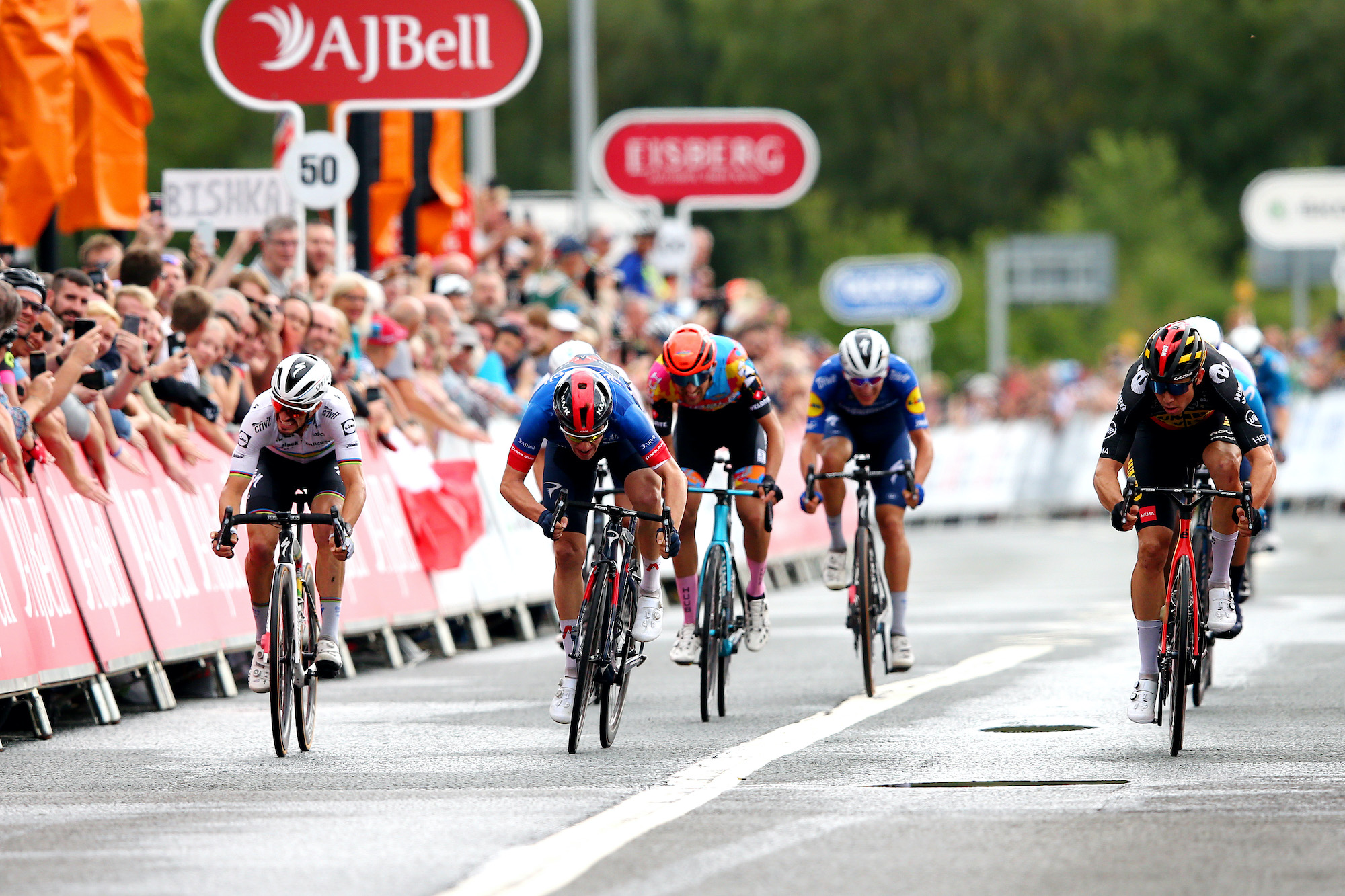
Van Aert carries on from where he left off
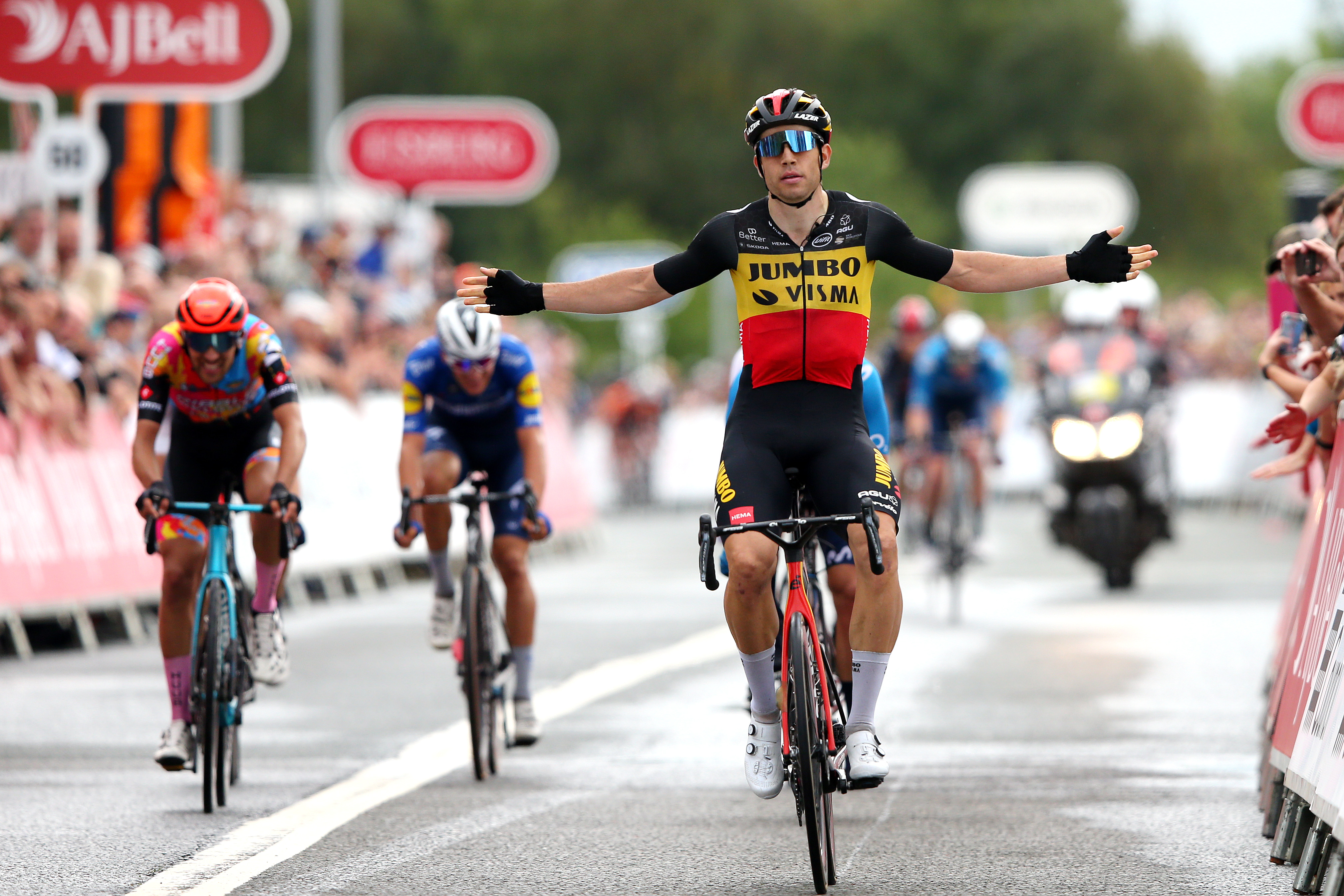
The 2021 Tour of Britain was Wout van Aert’s first race since July, when he attained what was possibly the highest ever form peak of his career, to win consecutive stages during the final weekend of the Tour de France and silver medal at the Olympics road race despite being marked by every other rider.
Usually you’d expect a rider to take some time to retain that shape after spending several weeks away from racing, but at the Tour of Britain Van Aert picked up from where he left off, winning half of the eight stages and the overall title in what was yet another astonishing display of his all-round talent.
From a large bunch finish in Aberdeen and a reduced bunch in Gateshead, to an uphill slog up Great Orme and draggy finish at Bodmin, Van Aert won virtually every different type of sprint that there is, with not even the master of uphill finishes Julian Alaphilippe (Deceuninck-Quick-Step) or the sport’s greatest ever sprinter Mark Cavendish (Deceuinck-Quick-Step) able to get the better of him.
He would have had a more straightforward path to overall victory had his Jumbo-Visma team not broken up during the team time trial, but the 20 seconds he ceded to Ineos Grenadiers’ Ethan Hayter made the race much more competitive than it might otherwise have been, and Van Aert had to rely on the bonus seconds on the final stage sprint to take overall victory.
In this kind of form, he’ll go into his final goals of the season — the World Championships in Flanders and Paris-Roubaix — as an even hotter favourite than he would have been anyway.
Ethan Hayter is going to be a star
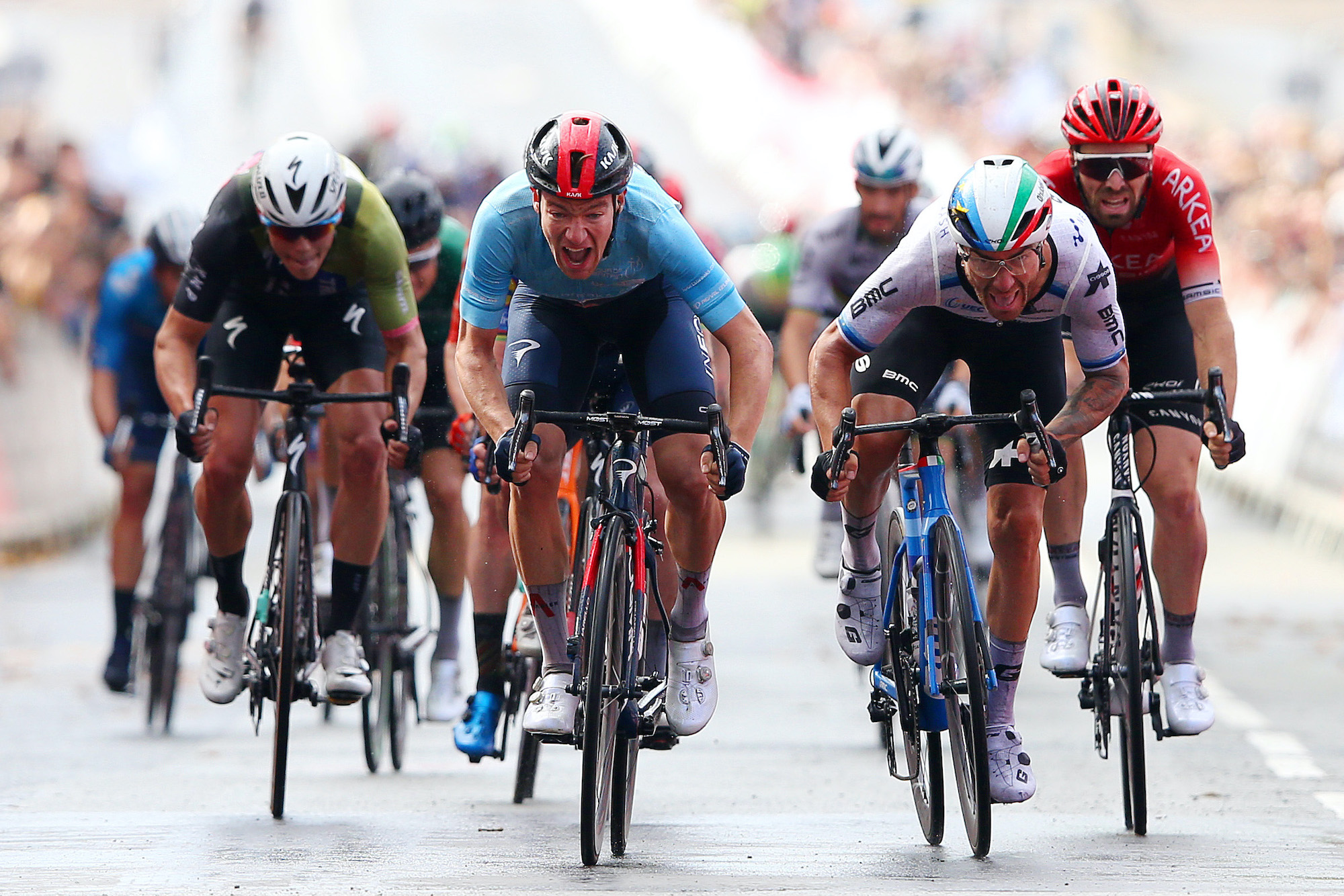
Ethan Hayter (Ineos Grenadiers) had already been enjoying a revelatory season, but the Tour of Britain was the surest sign yet that he is a star in the making.
Unlike his previous impressive showings on the road this year, as at the Volta ao Algarve, Ruta del Sol and the Tour of Norway, this time Hayter went toe-to-toe with arguably the world’s two top puncheurs, Wout van Aert and Julian Alaphilippe, and looked totally in his element.
Get The Leadout Newsletter
The latest race content, interviews, features, reviews and expert buying guides, direct to your inbox!
For most of the race, Hayter even found himself ahead of these two well-established superstars. After keeping himself in GC contention on the Great Orme summit finish, Hayter managed to take the overall lead after winning the crash-disrupted sprint in Warrington, then stubbornly held on to the jersey even up against the formidable might of this pair on his shoulder.
Although he did ultimately lose the jersey on the final stage of the race, this was nevertheless a brilliant performance from the 22-year-old, who must now be considered a serious candidate in even the biggest races. Britain has a new cycling star.
Deceuninck-Quick-Step have no answer to Van Aert’s dominance
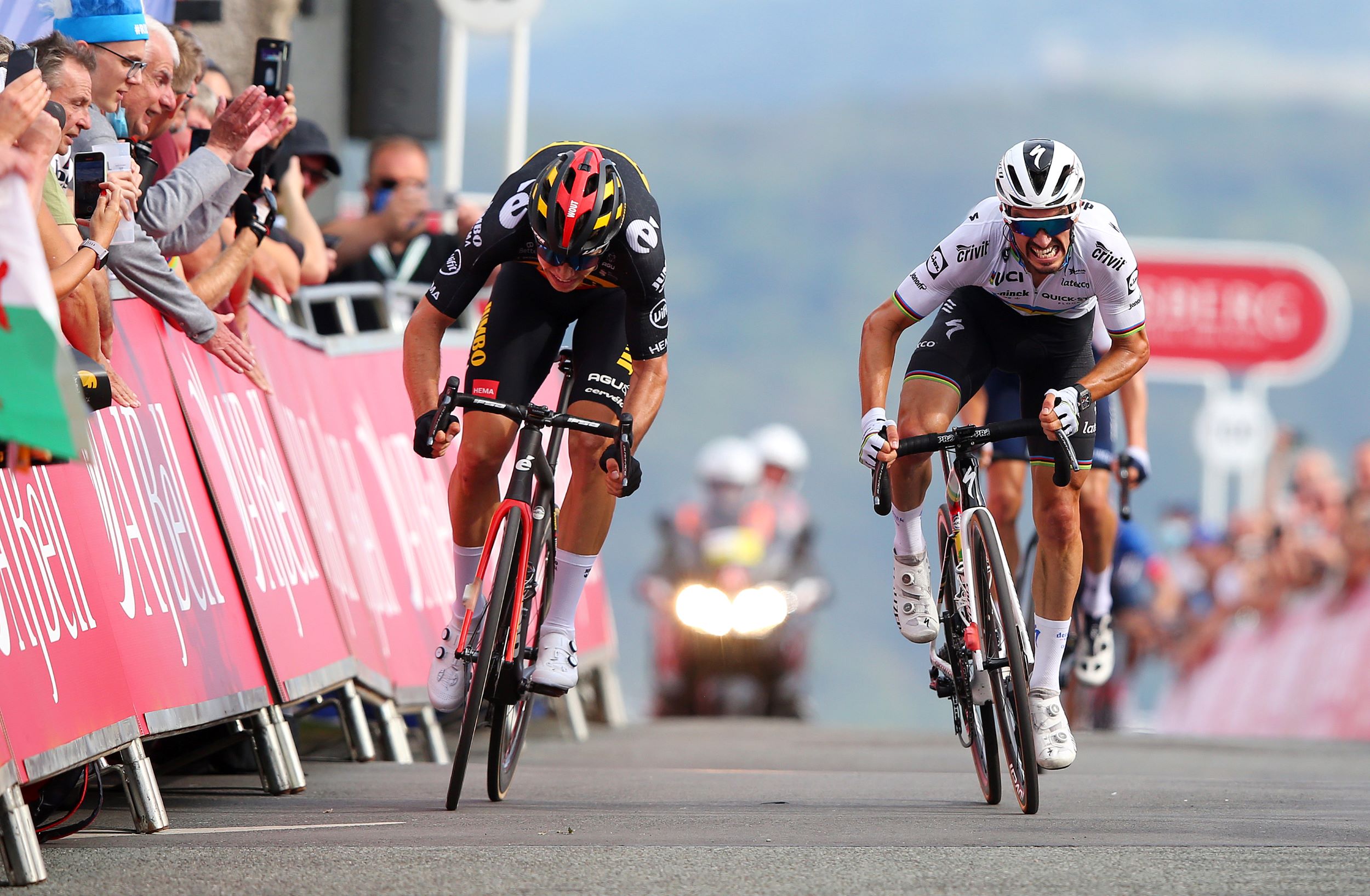
Deceuninck-Quick-Step came to the Tour of Britain with a squad packed with talent, and with the potential to compete for every stage, whether a sprint with Mark Cavendish or Davide Ballerini, or a punchy stage with Julian Alaphilippe, Yves Lampaert, or Mikkel Honoré.
Yet despite this strength in depth, they came home with just the one stage win courtesy of Yves Lampaert, as they failed to find a solution to stop the mighty Wout van Aert.
Although Alaphilippe might have expected to lose out on the draggy finish on the opening finish at Bodmin, he’s usually unbeatable on the kind of steep gradients that featured on stage four’s Great Orme finish. But even here he was edged out by Van Aert, and he continued to lose time in the subsequent stages, suggesting that the Belgian is in better form as the all-important World Championships looms on the horizon.
Then in the race’s single regular bunch sprint on the final day, Mark Cavendish didn’t have the legs to come around Van Aert, just as happened on the Champs-Élysées the last time the pair went head-to-head in a bunch sprint.
Rather than the sprints, Deceuninck-Quick-Step’s best hopes for success were from the breakaways, and even Mark Cavendish tried his hand in doing so on stage six.
Where Cavendish failed, Yves Lampaert succeeded, managing to get up the road along with team-mate Davide Ballerini the following day, and out sprinting the two remaining breakaway companions, while the team’s nemesis Van Aert remained back in the peloton.
But considering all of their talent, Deceuninck-Quick-Step would have wanted more from this race.
Parcours and team sizes aid breakaway successes
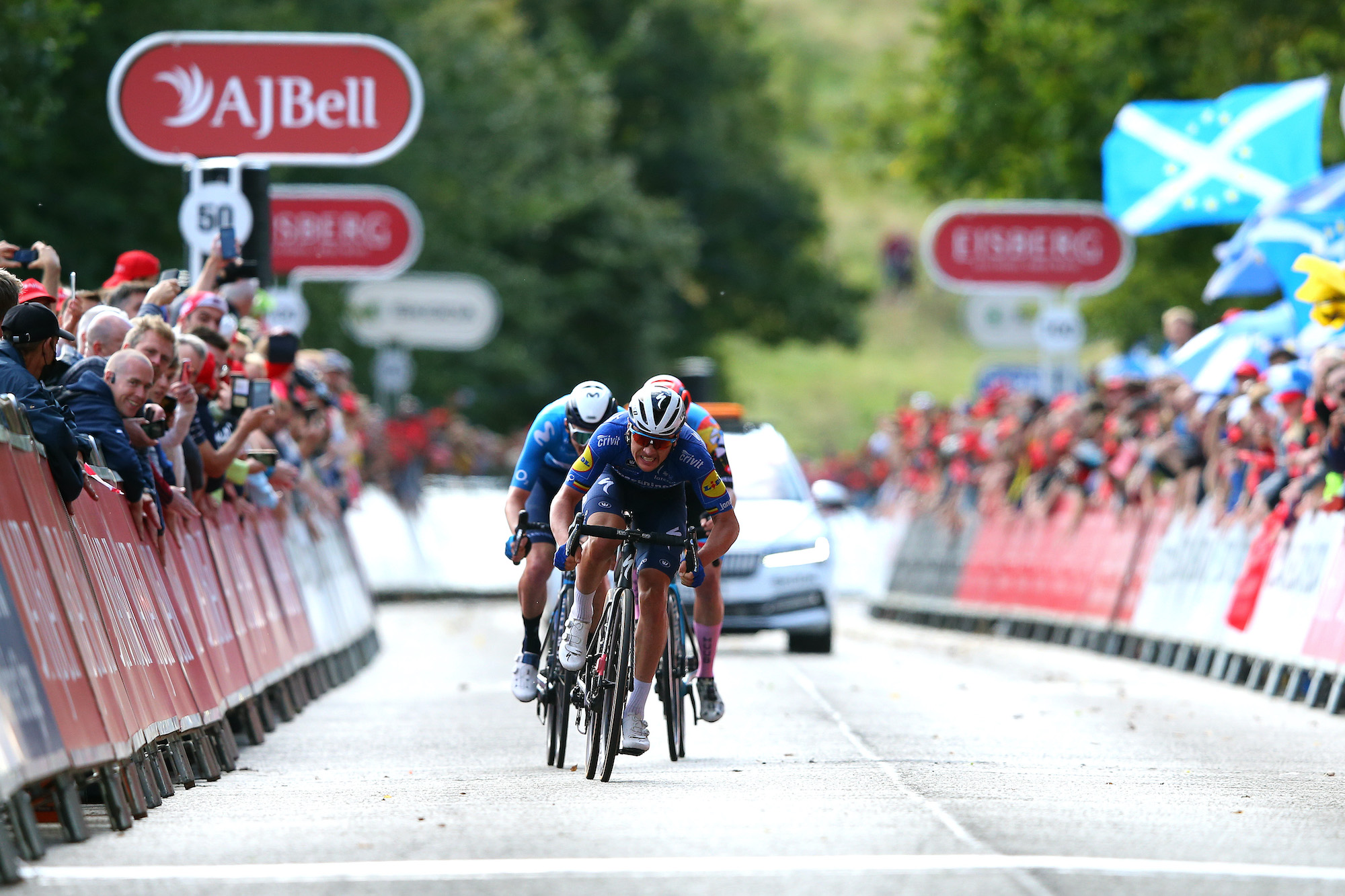
One of the great things about the Tour of Britain, and about racing in Britain in general, is how the rolling roads and terrain of the country make for unpredictable, punchy racing.
On paper it looked like that most of the stages would end with sprint finishes, whether uphill or flat. But in reality, when the many uncategorised climbs are taken into account, these stages were very difficult to control, and breakaways did end up having plenty of joy over the week.
The fact teams are limited to just six riders also plays a significant role in making the race hard to control, and was one of the contributing factors on stage two, when Robin Carpenter (Rally Cycling) managed to survive to the finish. He was exactly the kind of against the odds underdog winner that fans love to see, and even though he lost the blue jersey the next day, it was still a major success for both him and his Rally Cycling team.
The terrain on stage seven wasn’t quite so undulating, but once again the break was successful on stage seven, with Yves Lampaert this time coming out on top on stage that the sprinters — including possibly his own team-mate Mark Cavendish — might have pencilled in as a probable stage for them. It was another example of how exciting and unpredictable the Tour of Britain can be, and how there’s no such thing as a nailed-on bunch sprint in this race.
Retiring riders still show hunger
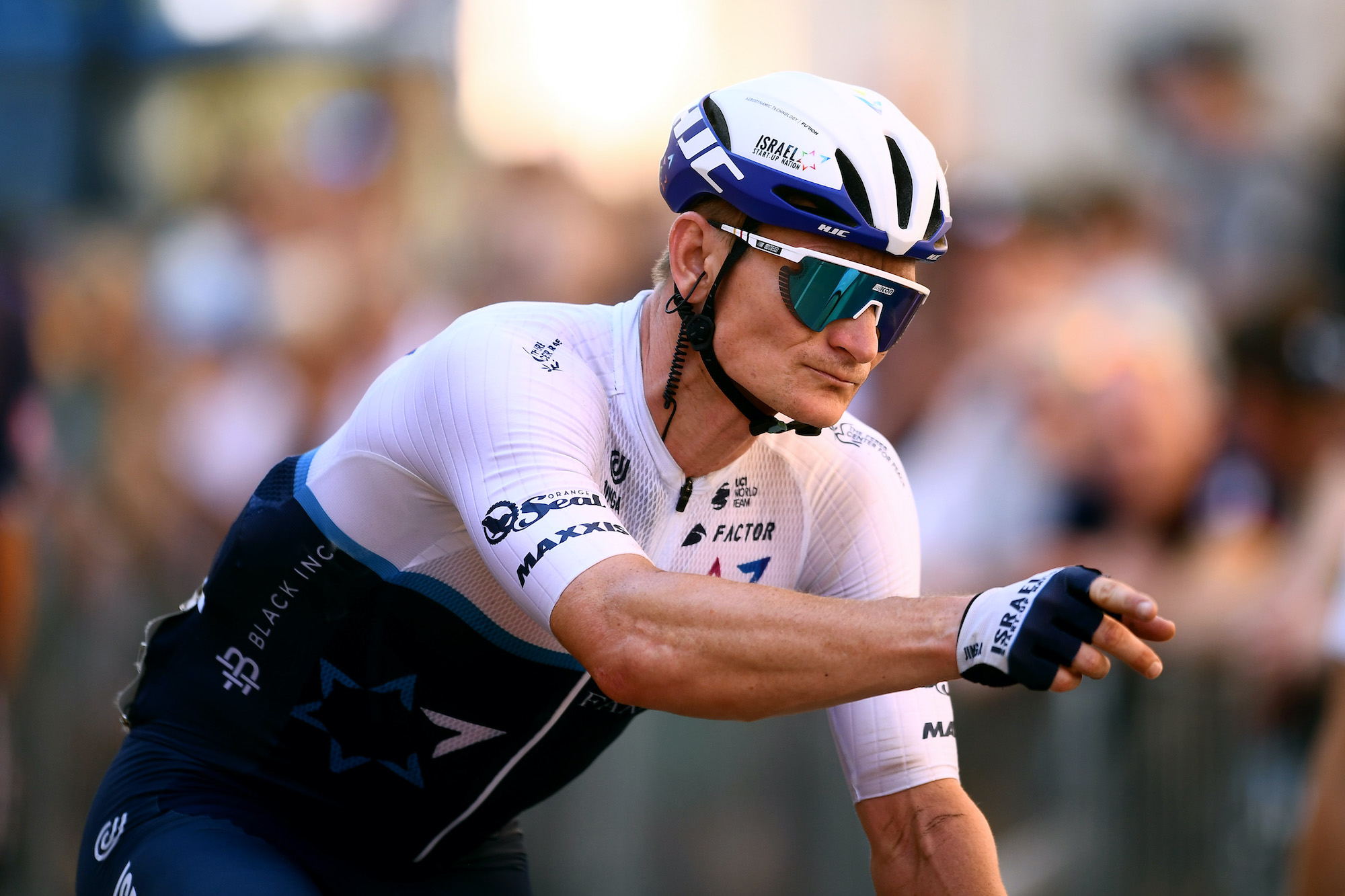
This year’s Tour of Britain marks the last time we’ll see Dan Martin and Andre Greipel (both Israel-StartUp Nation) race on British roads, and both showed no signs of easing up as their imminent retirements loomed.
Martin was right up there on the finish at Great Orme, where he placed sixth, and showed a desire to improve up his seventh-place on GC when he attacked early on stage seven. Although he did not succeed in getting away, and ultimately remained seventh overall by the end of the race, he continued to show exactly the kind of combative attitude that has made him such a popular rider over the years.
Andre Greipel was also in battling spirit, and nearly took a stage win on the finale in Aberdeen. He managed to get the better of his old nemesis Mark Cavendish in the bunch sprint, but trailed behind Wout van Aert and had to settle for second. He’ll be disappointed for sure, but considering he has another 163 career wins to reminisce about, this narrow miss doesn’t seem so bad in the grand scheme of things.
Both riders are among the best of their generation, and any fans who watched on the roadside can be honoured they managed to bid farewell to two such great ambassadors of the sport.

Thank you for reading 20 articles this month* Join now for unlimited access
Enjoy your first month for just £1 / $1 / €1
*Read 5 free articles per month without a subscription

Join now for unlimited access
Try first month for just £1 / $1 / €1
Stephen Puddicombe is a freelance journalist for Cycling Weekly, who regularly contributes to our World Tour racing coverage with race reports, news stories, interviews and features. Outside of cycling, he also enjoys writing about film and TV - but you won't find much of that content embedded into his CW articles.
-
 'It took everything' - Puck Pieterse outclimbs Demi Vollering to win La Flèche Wallonne
'It took everything' - Puck Pieterse outclimbs Demi Vollering to win La Flèche WallonneDutch 22-year-old shows Classics pedigree with first one-day victory
By Tom Davidson
-
 Tadej Pogačar flies to dominant victory at La Flèche Wallonne
Tadej Pogačar flies to dominant victory at La Flèche WallonneSlovenian takes second win at Belgian classic ahead of Kévin Vauquelin and Tom Pidcock
By Tom Thewlis